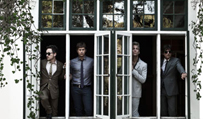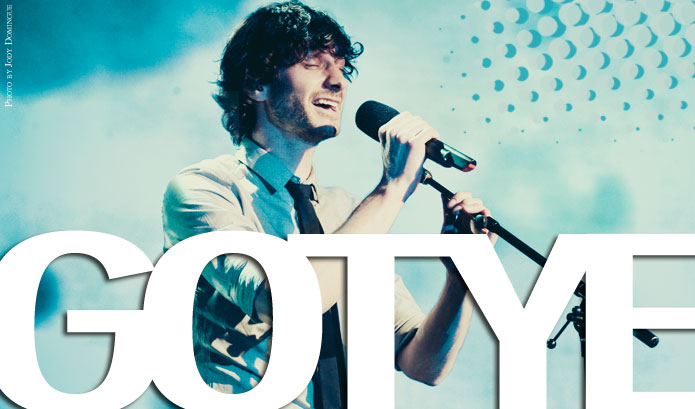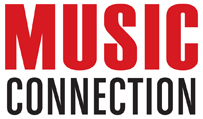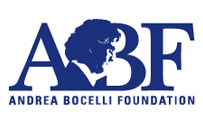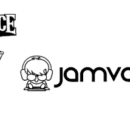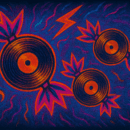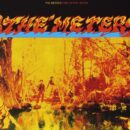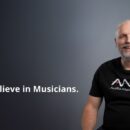By Dan Kimpel
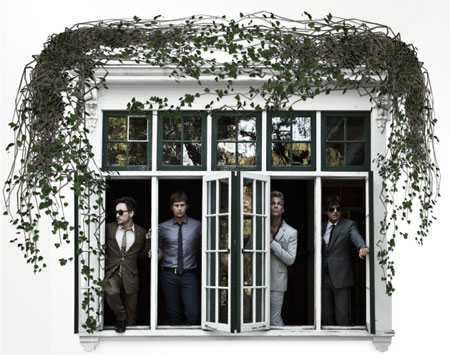
Photo Courtesy of Atlantic Records
With their first release in five years and first all-new collection of music in a decade, anticipation is high for Matchbox Twenty––Rob Thomas (lead vocals and piano), Paul Doucette (rhythm guitar and backup vocals), Kyle Cook (lead guitar and backup vocals) and Brian Yale (bass)––to add to their platinum legacy.
To connect the dots and create the magic, band members lived together in a house in the countryside outside of Nashville, TN, where they concentrated on turning a wealth of ideas into a solid set of 12 songs. Later, after joining forces with longtime producer Matt Serletic at his Emblem Studios in Calabasas, CA, Matchbox Twenty devised a new project that is a true group effort.
A solo artist and the writer of hit songs for other performers, Rob Thomas is the most identifiable member of Matchbox Twenty. In this exclusive feature, he tells MC about maintaining a presence as a group for 17 years, and how North signifies a true collective experience for the veteran band.
Music Connection: For past Matchbox Twenty projects, you have been the primary songwriter. This time, we understand that the other members of the band made significant contributions to the songwriting. How did this variety of writers evolve into what we hear on North?
Rob Thomas: It was a drawn-out process. Kyle and Paul started everything in Nashville while I was still on the road finishing my solo tour. As soon as I got off we did retreats. We would go to Paul’s studio for a week, then a month later we’d go to Kyle’s studio in Nashville and then a month later to my studio in New York. We were concerned about inspiration over craft. We’d have words and melodies, and not finish these songs, just work on the ideas. We did that in all of these places and then came to Nashville last summer with maybe 60 ideas that we had to figure outwhat we wanted to turn into songs. We narrowed it down to 20 songs and we started to record.
MC: What was the Nashville experience like? Some rustic cabin out of Deliverance?
Thomas: The house is in the middle of horse country––a cabin with a studio connected to it. And right up the hill is a nice studio that Tim McGraw and other artists use when they’re making their albums. We’ve been apart for so long, so we needed to get back together. Living together brought back that camaraderie, pushed it along, and made us all friends again––although sometimes we still hate each other.
MC: What is your primary focus and contribution as a songwriter?
Thomas: Percussive melodies. Thinking about the lyrics and the melody and what the beat of that is going to be, and where it’s going to land.
MC: In configuring the co-writes, was it a diplomatic atmosphere?
Thomas: One of the advantages of playing with guys for 20 years is that there are no punches being pulled. So for me, who is coming out of the solo thing, I might bring in a song I’ve been working on and I’m excited, and I play it for the guys, with that look of a kid at Christmas on my face and they’re like, ‘This sucks.” That’s harsh.
MC: Your lead single, “She’s So Mean,” is a fun opener.
Thomas: We have a history of taking ourselves a little seriously, and that’s a lot me, because I wrote most of the songs. And that’s what I would write. When you’re feeling introspective is when you sit down at the piano or pick up the guitar and start writing something.
MC: So is “She’s So Mean” a joint effort?
Thomas: It was all three of us; it was like a songwriting exercise. We thought it might be a good hip-hop song, with a single chord progression running through it. When we were writing it, each of us would take one section of the verse. I’d start with a line, then go to Paul, and then to Kyle in that weird language that songwriters write in, when it’s not even words yet. Then we went to the chorus and that went on forever. Once we came up with the concept of “She’s So Mean,” then it was all of us sitting around a table trying to figure out, “Now that we’ve got the line, what’s the story about? Let’s not make it about us, let’s make it like an intervention that you’re having with a friend who is dating this bitch.”
MC: Speaking of hip-hop, “Like Sugar” has an urban edge. How did that song develop?
Thomas: I wrote it on piano in the original version. We gave it to Paul and he took it to the studio and brought it back to us with this weird, Dr. Dre kind of vibe. And then [producer] Matt [Serletic] added some Depeche Mode keyboards to it, and Kyle came in with all these guitars. It was this vibrant track, and everyone who did something to it did it alone. They all went into their own world. I didn’t hear it forever and I came out to L.A. and was walking through the studio and they asked, “Have you heard ‘Like Sugar’ yet?” Everyone kept saying, “Just wait.”
MC: The sequence of songs opens with “Parade.” It talks about the passing of time, and the feeling of being afraid of missing out on something important.
Thomas: The song is about life in general and all of the experiences in it, and it equates to a kid in a small town who is watching a parade go by. And that’s the greatest time in your life; when it goes away you want to go with it. And it talks about life––you want to be out there for everything.
MC: There is a line in the song that says, “All the streetlight secrets whispering for you to come back out.”
Thomas: I think all musicians understand that idea; you know, as soon as you go back to your hotel you’ll get a call from someone who says, “You don’t know what you missed.”
MC: Beginning with “Parade” and concluding with “Sleeping at the Wheel” certainly creates a steep emotional arc. You’ve clearly created a conceptual body of work within this album.
Thomas: That’s a huge part of North. We’re in our late 30s and early 40s, so we grew up listening to albums. We make records for the few people who are still listening to all the songs from one to 12. There’s a lot that goes into the song selection process. We have a really quiet little song called “I Will” right in the middle of the sequence. We had another song we didn’t put on the record that could have occupied the same spot, but we didn’t have another place on the record to put it, or for that journey to happen again.
MC: Speaking of sequencing, how much time did you spend on deciding the order of songs?
Thomas: With sequencing we go back and forth for a month. On our last full album, More Than You Think You Are, we started with a song called “Feel” and we still kick ourselves, we hate the way that record opened. We know sometimes these things can haunt us.
MC: Matt Serletic has produced all of your albums including North, but he wasn’t originally a part of the plans. What changed your minds?
Thomas: He came down to Nashville to listen to some stuff, because he had things going on there. After three bottles of wine at three in the morning we were listening to his notes. Paul, who was one of the band members who didn’t want Matt to produce, said “Well, why don’t you just do it?”
MC: What did Matt do differently this time out?
Thomas: Matt always has this kitchen sink approach to producing. Matt’s our age. So when we get back together, we’re always evolving. The only reason to change producers is if you’re sick of one sound. But we’re always excited to see where Matt’s at. It’s not like we’re doing the same record every time.
With Matt, if I listen to the first Matchbox record, and all the Matchbox records and the solo records and the stuff he did with Willie Nelson and the stuff I did with Carlos Santana, all of those things sound different. I knew going into this record that if I could make four or five records with one producer and none of them sound the same, then why change that?
MC: The last song on North is “Sleeping at the Wheel.” Like “Parade,” it could be about life, love, or certainly the existence of musicians evolving separately within the context of a band.
Thomas: That’s one I wrote. I think it’s a band favorite. There’s not much on the track that wasn’t on the floor the night we cut it––drums, bass and guitar, everything we had on the first run through. It has a sleepy, sweet quality. I like the arrangement in that every verse is different, and it never goes back to the same thing twice.
MC: One of the lines says, “Everything that’s perfect falls away.”
Thomas: “Sleeping at the Wheel” is kind of about us as a band. Being at the point where we could turn away from it, or to go with it, but whatever happened had to be about us. There are certain lines, “Our hands are full but our lives are not.” It’s a call to arms to take control of our careers and our lives. And try to make the most out of this record.
MC: You have a track titled “Radio.” Practically speaking, how vital is radio airplay to the success of this album?
Thomas: It’s still a huge part of the business. For a band like Fleet Foxes, the Internet works. For a band like us, radio is key.
MC: We note that you will be a mentor of the NBC television series The Voice. TV has proven to be an excellent career choice for Adam Levine and his band Maroon 5, and of course Jennifer Lopez was reborn and rebranded on American Idol. What’s your view?
Thomas: Listen, I have a record to sell. So being on one of the biggest shows in the country isn’t going to be a bad thing for the record. I like that show; I like the fact that it focuses on the voice and that they don’t have any age restrictions on it. It’s not people who already had record deals, and failed and get a second chance. And the four judges are my peers. It’s cool.
MC: When you began with Matchbox Twenty, did you ever envision being on a network television show?
Thomas: We came out in the R.E.M. phase of the world with the idea that we don’t do that shit, you know? We don’t do commercial songs, or go on TV. As you get older you realize that pop culture changes. And you want to be a part of the pop culture lexicon just as much as you want to be part of the music lexicon in places that feel natural. I just co-hosted Live! With Kelly, a television show with Kelly Ripa. I thought why the hell not? It might be something different. We’re far away from being the kind of rock alternative band we were when we started. We are mainstream––we make music for people to listen to, no matter who they are.
MC: What does the title North signify in terms of the present and the future of the band?
Thomas: I think it came out of the idea that, when we came together and we had all of these ideas and we’d been separated for so long, we had to figure out who we were as a band and who we were as people. We had to make that all come together, and what kind of record we want to make, and what kind of career we wanted. North is directional north. When you can’t find your way, you look for North and that helps you figure out where you’re going. So for us, it was about being in the place where we knew who we were, where we were going, and what we wanted to do. And maybe very recently we didn’t know.
Contact christina.kotsamanidis@atlanticrecords.com

